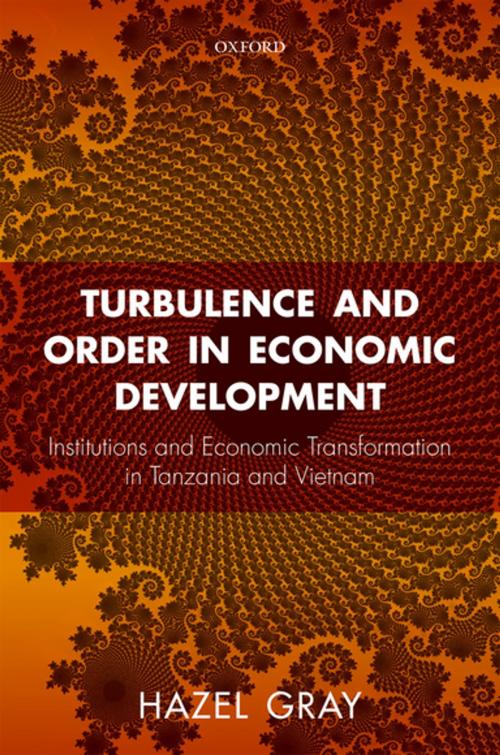Turbulence and Order in Economic Development
Institutions and Economic Transformation in Tanzania and Vietnam
Business & Finance, Economics, Economic Development| Author: | Hazel Gray | ISBN: | 9780192548016 |
| Publisher: | OUP Oxford | Publication: | February 8, 2018 |
| Imprint: | OUP Oxford | Language: | English |
| Author: | Hazel Gray |
| ISBN: | 9780192548016 |
| Publisher: | OUP Oxford |
| Publication: | February 8, 2018 |
| Imprint: | OUP Oxford |
| Language: | English |
The terms of debate on the role of institutions in economic development are changing. Stable market institutions, in particular, secure private property rights and democratically accountable governments that uphold the rule of law, are widely seen to be a pre-requisite for economic transformation in low income countries, yet over the last thirty years, economic growth and structural transformation has surged forward in a range of countries where market and state institutions have differed these ideals, as well as from each other. Turbulence and Order in Economic Development studies the role of the state in two such countries, examining the interplay between market liberalization, institutions, and the distribution of power in Tanzania and Vietnam. Tanzania and Vietnam were two of the poorest countries in the world in the early 1980s but over the last thirty years, both have experienced significant changes in the pace and character of economic development. While both countries experienced faster rates of GDP growth, their paths of economic transformation were very different as Vietnam experienced rapid poverty reduction associated with the expansion of manufacturing while Tanzania's path of industrialization was characterized by the rise of mining and a much slower pace of poverty reduction. Employing a political settlements approach, this book considers the comparative role of the state in driving economic transformation. In both countries, the experiences of socialism continued to shape the role of the state in the economy even after extensive market liberalization, however, the distribution of political and economic power was very different. This had important consequences for the overlapping role of the state in generating political order and in driving economic transformation. Turbulence and Order in Economic Development studies the formal and informal ways that the state influenced economic transformation through its role in public financial management, land and industrial policy.
The terms of debate on the role of institutions in economic development are changing. Stable market institutions, in particular, secure private property rights and democratically accountable governments that uphold the rule of law, are widely seen to be a pre-requisite for economic transformation in low income countries, yet over the last thirty years, economic growth and structural transformation has surged forward in a range of countries where market and state institutions have differed these ideals, as well as from each other. Turbulence and Order in Economic Development studies the role of the state in two such countries, examining the interplay between market liberalization, institutions, and the distribution of power in Tanzania and Vietnam. Tanzania and Vietnam were two of the poorest countries in the world in the early 1980s but over the last thirty years, both have experienced significant changes in the pace and character of economic development. While both countries experienced faster rates of GDP growth, their paths of economic transformation were very different as Vietnam experienced rapid poverty reduction associated with the expansion of manufacturing while Tanzania's path of industrialization was characterized by the rise of mining and a much slower pace of poverty reduction. Employing a political settlements approach, this book considers the comparative role of the state in driving economic transformation. In both countries, the experiences of socialism continued to shape the role of the state in the economy even after extensive market liberalization, however, the distribution of political and economic power was very different. This had important consequences for the overlapping role of the state in generating political order and in driving economic transformation. Turbulence and Order in Economic Development studies the formal and informal ways that the state influenced economic transformation through its role in public financial management, land and industrial policy.















